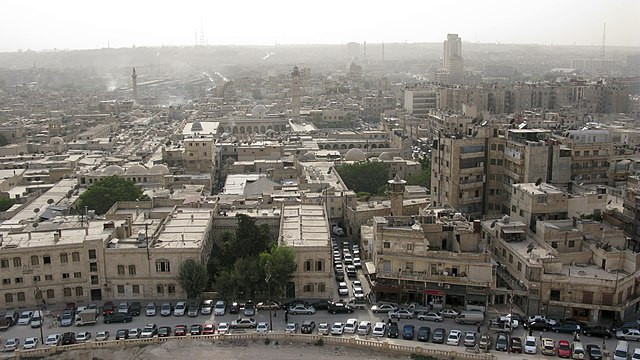Iran-backed Iraqi militias crossed into Syria overnight to support government forces struggling to counter an insurgent advance that has swept through northwestern Syria, including Aleppo, the country's second-largest city. The dramatic escalation has destabilized the region, raising concerns among neighboring countries and international powers.
These are "fresh reinforcements being sent to aid our comrades on the frontlines in the north," a Syrian army officer told Reuters. The militias, including fighters from Kataib Hezbollah and the Fatemiyoun Brigade, crossed the border into Syria near the town of Bukamal, according to the Associated Press and the Syrian Observatory for Human Rights.
The insurgents, led by Hayat Tahrir al-Sham (HTS), have launched a coordinated assault, taking control of Aleppo and pushing into Hama and Idlib provinces. The offensive has forced Syrian government forces into retreat, undermining President Bashar al-Assad's already tenuous grip on power.
Amid the crisis, Syrian and Russian airstrikes targeted rebel-held areas on Sunday, with Syria's military claiming to have killed 400 insurgents in the last 24 hours. Syrian forces are reportedly fortifying defenses in Hama and mobilizing to encircle the rebels in Aleppo and its surroundings.
Iranian President Masoud Pezeshkian reaffirmed Tehran's support for Assad during a phone call on Monday. "Syria's security and stability are closely linked to Iraq's national security and play a crucial role in regional security," Iraqi Prime Minister Mohammed Shia al-Sudani told Jordan's King Abdullah II, emphasizing the interconnected nature of the conflicts in the region.
Tehran-backed militias, already active in Syria, have mobilized additional reinforcements to aid Assad's forces. Around 200 Iraqi militiamen crossed into Syria through the Bou Kamal crossing, the Syrian Observatory for Human Rights reported.
The rebel offensive has drawn attention from Turkey, a key backer of opposition forces. Turkish Foreign Minister Hakan Fidan called for de-escalation and political reconciliation. "We do not want to see an escalation of the civil war in Syria," Fidan said after meeting with Iranian Foreign Minister Abbas Araghchi. He stressed the importance of preventing further displacement of civilians.
Meanwhile, the humanitarian crisis continues to worsen. Syrian Kurds fled Tel Rifaat en masse after Turkish-backed rebels seized the town. The Kurdish-led Syrian Democratic Forces (SDF) called for a humanitarian corridor to enable civilians to escape safely.
The Syrian Civil Defense, known as the White Helmets, reported that airstrikes in Idlib and Aleppo killed at least 10 civilians on Monday. The organization, which focuses on rescue operations, urged caution for displaced individuals attempting to return to bombed areas.
Despite the airstrikes, insurgents have strengthened their foothold in Aleppo, raising questions about the resilience of Assad's regime. Moscow, a key ally of Assad, reiterated its commitment to supporting the Syrian government. "We, of course, continue to support Bashar Assad," Kremlin spokesman Dmitry Peskov said. "We continue our contacts at the appropriate level and analyze the situation."
The loss of Aleppo is a severe blow to Assad, coming as his allies face challenges on multiple fronts. Russia remains embroiled in the conflict in Ukraine, and Iran's resources are stretched thin amid regional tensions. The conflict has also unsettled Iraq, with increased security measures along its border with Syria to prevent spillover violence.




